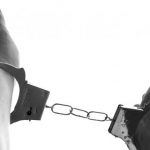What is an Unlawful Detention?

As information continues to emerge about the recent alleged kidnapping of former Australian test cricketer Stuart MacGill, many people are still coming to terms with the chilling details.
Mr MacGill alleges he was kidnapped on 14 April 2021, driven to a farm shed in Bringelly in Western Sydney stripped naked, beaten several times, and threatened at gunpoint for an hour before being dumped in Belmore.
Alleged kidnapping of Stuart MacGill
Mr MacGill alleges he was kidnapped near his home in Sydney’s north shore a week after he introduced Marino Sotiropoulos – the brother of his partner, Marie O’Meagher – to a drug supplier named ‘Sonny’, who was a regular customer at the restaurant currently managed by Mr MacGill and Ms O’Meagher.
Police allege Mr Sotiropoulos sold 2kg of cocaine to Sonny for $660,000, who took the drugs but either failed to pay for them, or used counterfeit money to pay, before disappearing.
Mr Sotiropoulos allegedly went to Mr MacGill’s home after Sonny vanished, asking the former cricketer for help on the basis it was a “matter of life and death”.
Mr MacGill says he refused to participate, after which he claims Sotiropoulos told him: “Mate, it’s all over for you, you’re fucking dead.”
Mr MacGill says that hours later, he was detained, strip-searched for wires, punched repeatedly to the heard, forced into a car and taken to the farm shed.
One of the three men who are said to have met at the shed allegedly demanded that McGill pay $150,000, threatened to cut off his fingers with a pair of bolt cutters if he failed to deliver.
Arrests and charges
Mr MacGill made a report to police several days later, saying he feared for his life.
The resulting police investigation led to the arrest of four men, Mr Sotiropoulos, Son Minh Nguyen, Richard Schaaf and Frederick Schaaf
Mr Sotiropoulos has been charged with the offences of kidnapping, assault occasioning actual bodily harm, participating in a criminal group and commercial drug supply.
Son Minh Nguyen, 42, was charged with kidnapping and directing the activities of a criminal group.
Richard Schaaf, 29, who is reported to be a Comanchero biker club associate, and his brother
Frederick Schaaf, 27, have been charged with kidnapping and participating in a criminal group.
What is an unlawful detention?
A detention is unlawful if it contravenes the civil or criminal laws of the jurisdiction in which it took place.
Criminal law
Section 86 of the Crimes Act 1900 (NSW) is headed ‘kidnapping’ and makes it an offence to take or detain another person without their consent with the intention of holding them for ransom, committing a serious indictable offence or obtaining any other form of advantage.
A ‘serious indictable offence’ is one which carries a maximum penalty of at least 5 years in prison; which includes most property offences such as larceny, stealing and fraud.
The maximum penalty for kidnapping is 14 years in prison.
The maximum increases to 20 years in prison where the alleged offender was with another person or persons or caused actual bodily harm to the alleged victim.
‘Actual bodily harm’ is that which is more than just ‘transient or trifling’ – in other words, very trivial – and includes lasting bruises and abrasions, as well as deep scratches.
The maximum increases to 25 years in prison the alleged offender was with another person or persons, and caused actual bodily harm to the alleged victim.
Defences to kidnapping
In addition to having to prove each of the ‘elements’ (or ingredients) of the offence, the prosecution must ‘negative’ (or disprove) beyond reasonable doubt any valid legal defence that is raised on the evidence.
Legal defence to kidnapping include:
- Self-defence,
- Duress,
- Necessity,
- Being the child’s parent (provided a court order is not contravened), and
- Acting with the consent of the child’s parent.
For the purposes of the offence, a ‘child’ is defined as a person under the age of 16 years.
A person who has been kidnapped may be entitled to compensation for false imprisonment under the civil law, or to victims’ support – also known as victims’ compensation – under the government’s statutory scheme.
Civil law
Under civil law, false imprisonment is classed as a intentional tort involving a wrongful, intentional act causing restraint on the liberty of another person, for any period of time.
In order to prove that an imprisonment is false and therefore gives rise to civil liability for damages, a plaintiff must establish ‘on the balance of probabilities’ (in other words, that it is more likely than not) that the defendant:
- The defendant intentionally caused the total restraint of the plaintiff’s liberty.
In that regard, the restraint of liberty must be total and not merely a partial constraint of movement.
However, the deprivation of liberty can be actuated by non-physical boundaries and does not require physical contact.
The element will be established where it is demonstrated that the plaintiff felt obliged to submit to the instructions of the defendant.
- The restraint was not lawfully justified.
Once the restraint of liberty has been established, it is for the defendant to then show that that the restraint was performed pursuant to lawful authority.
Claims for false imprisonment can arise in a range of situations, including where police perform an illegal arrest and detain a person without lawful authority to do so.
Kidnappings are not as rare as you might think
According to figures released by the Australian Bureau of Statistics (ABS), kidnappings are on the rise right across Australia.
Out of 534 kidnappings and abductions nationwide in the last financial year, 225 of them occurred in New South Wales and in most cases, the kidnappers are known to their victims, either family members, friends or acquaintances.
In the case of Mr MacGill, police allege he is an innocent victim – neither he or his partner Ms O’Meagher have been charged or linked in any way to the alleged drug deal.








